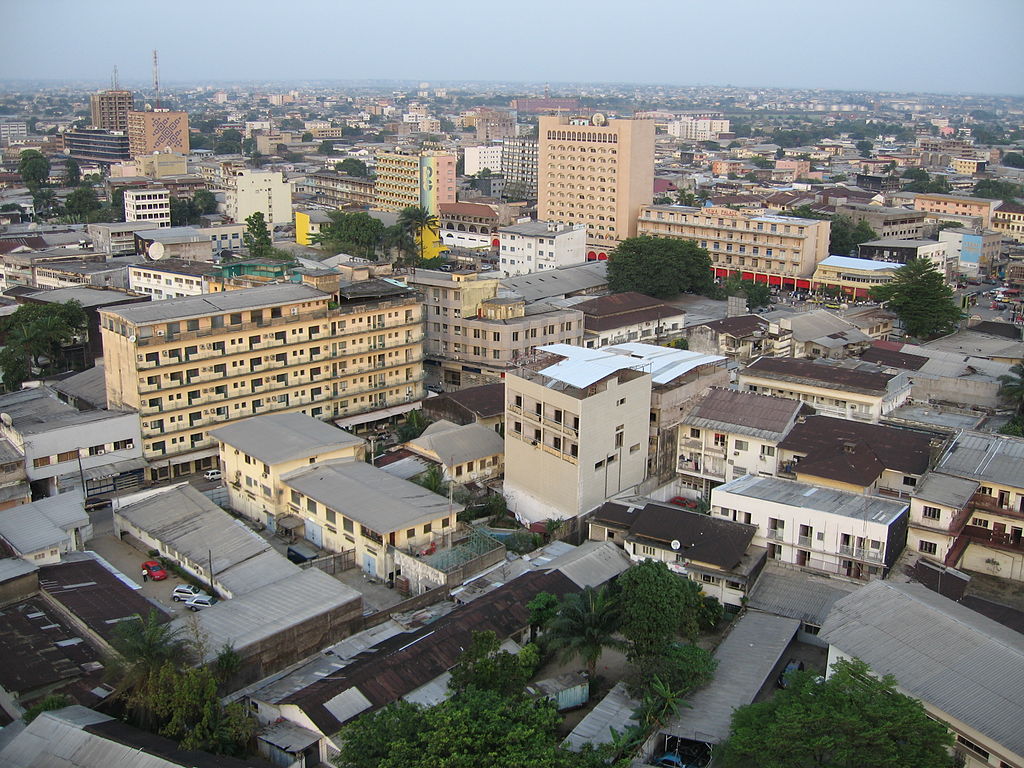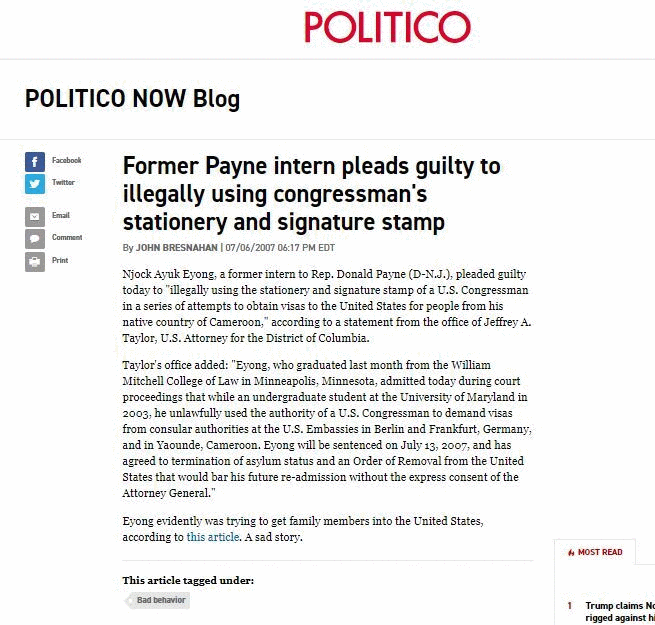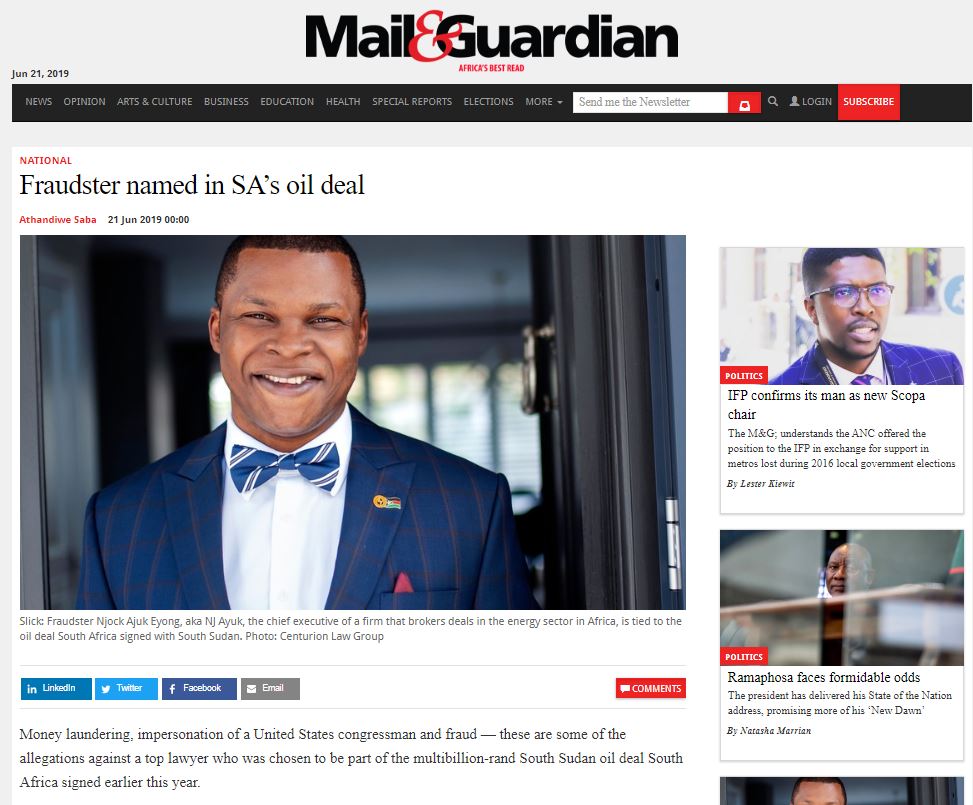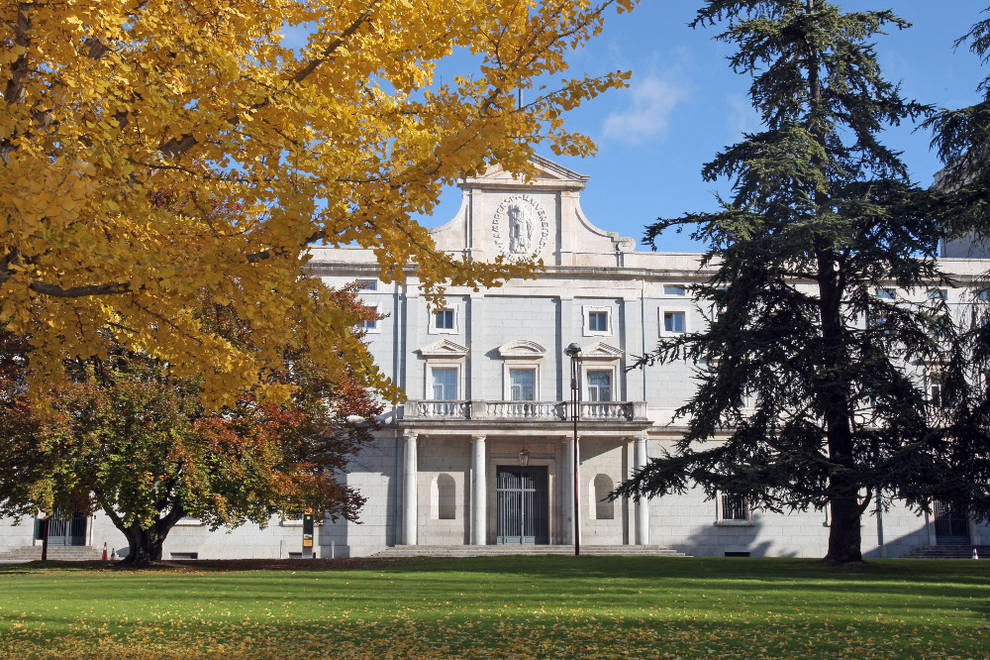Blackout
How the M&G got censored
On September 10, the Mail & Guardian received a notice from our hosting service, Linode.
The oldest online news website in Africa was accused of plagiarism.
“You must remove access to the material immediately. If you do not, Linode must remove or disable access to the material expeditiously under federal law,” the email stated, referring to the Digital Millennium Copyright Act (DMCA), a copyright law in the United States, where Linode is based.
A few days later the M&G website was shut down over an unverified complaint, in an action amounting to media censorship.
This is the story about how the M&G was attacked and the investigation that followed.
Censored
It all began in the coastal city of Douala in Cameroon.

City of Douala, Cameroon. (Photo: Wikipedia)
In May this year the M&G started investigating a man known by many names. Njock Ajuk Eyong, also known as AJ Ajuk, and Njuck Eyong and now NJ Ayuk JD, MBA, owns Centurion Law, is from Cameroon.
His law firm's website states that he is a leading energy lawyer and a strong advocate for African entrepreneurs. He studied law at the William Mitchell College of Law in the US.
In June the M&G reported that he was allegedly involved in money laundering, impersonation of a US congressman and fraud.
Ajuk was also handpicked, allegedly by former Energy Minister Jeff Radebe, to be part of the multimillion South Sudan oil deal South Africa signed in 2019. The deal is worth an estimated R14.5-billion
The M&G saw court records from the district court for the District of Columbia in the US that show that, in 2007, Eyong was found guilty of impersonating congressman Donald Payne so he could issue visas to at least nine people who were then living in Cameroon.
Ajuk was given numerous opportunities to provide the M&G with comment. Instead, he sent the newspaper a threatening letter, although he never disputed that he was found guilty of fraud in the US back in 2007.

Numerous publications have reported on Ajuk's fraud case.
Ajuk was also flagged by Ghanaian media in 2015.
The Finder newspaper wrote that Centurion director Genevive Kabukuor Ocansey was arrested and detained for allegedly aiding a Cameroonian — Eyong — to launder $2.5-million into Ghana and repatriate $1-million to Equatorial Guinea.
The report stated that, after a tip-off, officials of the Bank of Ghana undertook several months of investigations and arrested Ocansey, who, according to the Centurion website, is the company’s director in Ghana.
The article noted that: “Her accomplice, Njoy Ayuk Eyong, also known as NJ Ayuk MBA, is out of Ghana at the moment.”
Three months after the M&G published the report on Eyong, we received an email.
United States website hosting service Linode informed the M&G — which is based in Johannesburg — that a blogger claimed that the mg.co.za domain had plagiarised one of the blog’s articles about Njock Ajuk Eyong.
When asked whether Linode had investigated the complaint, Peter Fu, who is the company’s legal council, said that the company is unable to respond as it would “reveal internal security mechanisms and likely cause more instances of ticketing abuse”.
The M&G's attacker has successfully taken advantage of loopholes in the legislation of the DMCA to remove an investigative article in a foreign country.
Public interest lawyer Avani Singh said that the DMCA allows internet service providers (ISPs) and web hosting services to avoid liability if they act “expeditiously” in removing content. This means that content can be removed automatically with little consideration for whether the complaint is valid.
“In practice, the opportunity to challenge this [complaint] only arises once the content has already been removed. Commentators have described the DMCA as 'one of the biggest threats to free speech online', because the ‘notice and take-down scheme’ fails to provide affected websites with due process before the content is removed," Singh said.
“This forced acquiescence — often in the face of a threat that one’s website will be taken down completely if the content is not removed — and the administrative burden of having to file a counter-notice to justify the content, risks impeding both free speech and procedural fairness,” Singh said.
One study, titled Notice and Takedown in Everyday Practice, published by researchers from Berkeley Law at the University of California in 2016 found that 72% of takedown requests analysed presented questions about their validity. “These notices often targeted social media, blogs and personal websites, raising even greater questions about their effect on expression,” the research paper stated.
Singh added that matters are further complicated for non-US entities that have to deal with transnational jurisdiction should they choose to challenge the ISP in court.
About 1 000 host machines have been subject to “filtering” by Linode due to DMCA claims this year alone, said Fu.
Linode, which is based in Philadelphia, gave the M&G 96 hours to take down the article.
After reaffirming that the story had not been plagiarised, the M&G was intent on fighting this. Complying would amount to censorship.

In the early hours of Friday, when our website traffic is usually most active, Linode suspended its services.
We took down the article and our website was restored.

This was the M&G story on Ajuk, which is available through web archives. View here.
The Invisible Man
The complainant used the name Ian Simpson, which — as far as we could tell — is fake.
Simpson told Linode that his address was “2428 Hilltop Haven Drive, Newark, New Jersey, 07102” but no such place can be found. A former M&G employee in New York verified that the address does not exist.
Simpson said he was the author of a blog called World Wide News Blogspot. But since the complaint was made, the bylines of all the blog articles have been changed to Chris Lynn.
Public records of business owners in the US show that there is no one by that name living in the state of New York.
Simpson also provided a phone number that is out of service.
The posts on Simpson's blog cover topics such as online media and ethics in journalism.
A simple Google Search and online plagiarism checkers reveal that all of the posts on the Worldwide News Blogspot have been published on other blogs under anonymous bylines.
The sites include USA In News, Kinds Info, Global News, Worldwide News, World Wide News Q and Top Unlimited Quotation.
The websites regularly post plagiarised content and links that redirect to a blog called News Entrepreneurs, which is authored by James Breiner.
The Spanish Professor
Breiner currently lives in Spain, where he teaches digital media and communication. When he is not lecturing at the University of Navarra he’s blogging about the field and his lectures.

University of Navarra in Pamplona, Spain. (Photo: University of Navarra)
Little did Breiner know that his blog is at the centre of a web ring — a devious tactic used by hackers to increase traffic to their websites.
The M&G contacted Breiner in the northern Spanish province Pamplona. He maintained that he had no knowledge of the blogs, nor the names Ian Simpson and Chris Lynn.
“If this guy [Ian Simpson] wants to impersonate me, I'm not sure I could do anything about it. Do I think it's good? No. I'm upset about it,” he said in a staunch American accent, sounding agitated.
“When I saw that the website in question had run three of my blog posts and linked to the original posts and my blog, I shrugged. I viewed as simply free redistribution [sic]. However, the fact that this website is accusing you of plagiarism and trying to get you shut down is worrisome.”
An independent investigator who assisted the M&G said that even though these types of attacks are relatively uncommon, sites such as Black Hat World advertise web rings and DMCA takedowns on their forums. "Black hat" is a term commonly used to refer to hackers with malicious intent.
The M&G continues to investigate the attack and all parties involved.
"We will not be cowed. We will not relent in our pursuit of holding the powerful to account. As custodians of this fine institution, we will continue to pursue the highest tenet of journalism: truth." — Khadija Patel, M&G editor-in-chief.
To Be Continued
This scrollytelling article was developed by Jacques Coetzee. Writing is by Athandiwe Saba and Coetzee. Code and data used can be found Github and more coverage of press freedom can be found on the M&G.